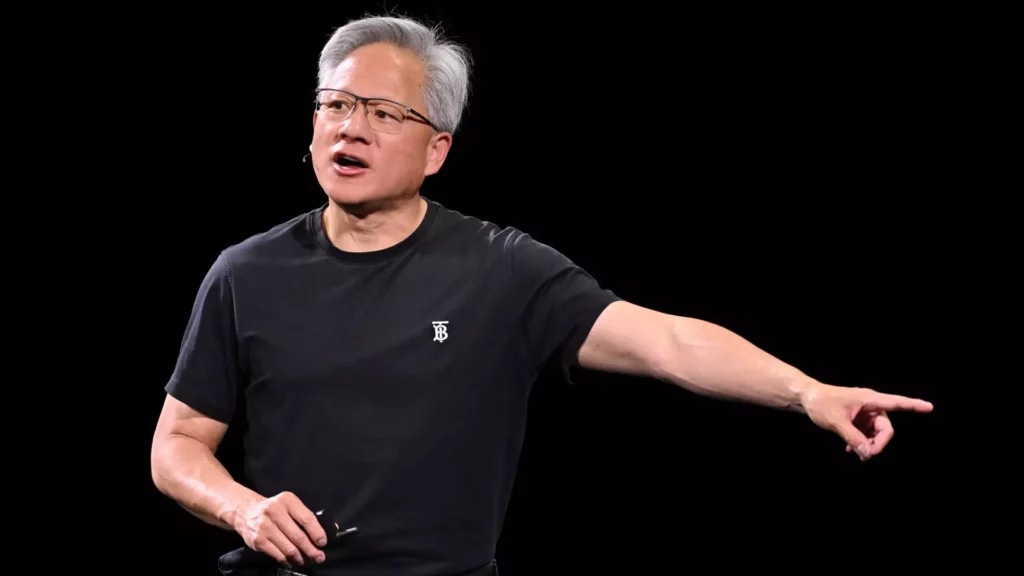The instinctive reaction to billions in insider stock sales is often one of alarm. Conventional wisdom dictates that when executives or insiders begin offloading large amounts of company shares, it signals impending trouble—declining confidence, deteriorating business fundamentals, or upcoming crises. Nvidia’s recent wave of insider sales exceeding $1 billion seems, at face value, to fit this negative narrative. Yet, such a simplistic interpretation grossly misrepresents the reality of these transactions, particularly in a high-growth, market-leading tech giant like Nvidia.
Insider stock selling is far more nuanced and often driven by personal financial planning rather than distress signals. Nvidia’s CEO Jensen Huang, a billionaire with net worth estimated around $138 billion, has methodically and transparently sold hundreds of millions of dollars worth of shares, executing pre-arranged trading plans that are publicly disclosed in accordance with regulatory requirements. This isn’t panic selling. Rather, it is a calculated move to diversify personal wealth—an exercise in prudent asset management, not a vote of no confidence in the company’s prospects.
Why Timing and Context Matter More Than Ever
Trying to judge Nvidia’s health purely by the timing and scale of insider sales ignores the bigger picture—one where the company’s stock has surged by 44% in just three months, while the market continues to exhibit unrelenting enthusiasm for its innovation in AI and beyond. The stock price increase, fueled by Nvidia’s command over the AI chip industry and its forward-looking ventures into robotics, floats above geopolitical headwinds and supply chain uncertainties.
The market’s bullish response underscores a critical point: investors still trust Nvidia’s leadership and technological edge. Insider sales often correlate more closely to stock price peaks, with executives choosing to reap gains during periods of optimism. Huang’s sales triggered once Nvidia’s share price crossed the psychologically significant $150 mark aren’t a harbinger of doom but a timing strategy consistent with maximizing personal returns during a bullish run.
A Strategic Vision Beyond AI: Robotics and Diversification
One cannot assess Nvidia’s future solely by its existing AI dominance. Jensen Huang himself has spotlighted robotics as the next major growth frontier—signaling a willingness to pivot and innovate beyond the current AI frenzy. This strategic diversification is more than corporate jargon; it’s a measured bet on the widening technological ecosystem where AI-driven robotics will harness Nvidia’s core expertise in high-performance chips.
Such foresight confirms that Nvidia is not complacent or narrowly focused on short-term gains but aims to cement leadership across multiple, converging industries. This multifaceted growth strategy fundamentally challenges any notion that insider sales indicate poor prospects. Instead, it reaffirms a confident long-term vision, which sophisticated investors are clearly recognizing.
The Danger of Superficial Interpretations in Investing
The Nvidia insider selling saga reveals a broader problem endemic to how some investors decode signals. Oversimplification and the temptation to react emotionally to headline numbers can lead to misguided positions. Treating insider sales purely as ominous signs without dissecting their nature and underlying motivations risks missing lucrative opportunities.
From a center-right liberal perspective that values market efficiency, entrepreneurial leadership, and individual financial autonomy, Huang’s actions are exemplary. They are a testament to disciplined wealth stewardship and an acknowledgment that even visionary CEOs must manage personal fiscal risk prudently. The market’s embrace of Nvidia’s trajectory, despite large insider sales, highlights how rational investors factor in complex data—looking past superficial narratives toward intrinsic value and innovation potential.
Ultra-Rich Executives and Normal Financial Behavior
Finally, it’s crucial to humanize these billionaires rather than paint their share sales as betrayals. For someone with a stake exceeding a hundred billion dollars, the notion of “selling too much” is relative. Rebalancing a portfolio and securing liquid assets to meet various obligations—philanthropic, personal, or investment-related—is perfectly reasonable.
Nvidia insiders’ behavior aligns with what we should expect from responsible stewards of massive wealth: planned, regulated, and phased disposal of assets that do not compromise confidence in their companies. Investors who understand this dynamic are better positioned to differentiate signal from noise, avoiding panic while appreciating the strength and strategic foresight that characterizes Nvidia’s leadership and market stance.









Leave a Reply